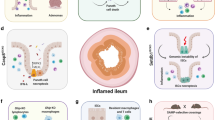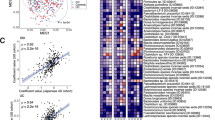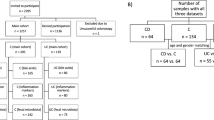Abstract
This UH2/UH3 demonstration project entitled “Effects of Crohn’s disease risk alleles on enteric microbiota” is focused on characterizing intestinal associated microbiota in patients with ileal Crohn’s disease (ileal CD), ulcerative colitis (UC) and control patients without inflammatory bowel diseases (non-IBD). We hypothesize that genetic factors that affect Paneth cell function, contribute to compositional changes in intestinal microbiota. These changes in microbiota may lead to reduction of protective commensal organisms and increased numbers of aggressive organisms that incite intestinal inflammation. This hypothesis is being tested by high throughput 16S rRNA sequence analysis of de-identified ileal and colonic tissues that have been archived at Washington University St. Louis, University of North Carolina, Mount Sinai Hospital and the Cleveland Clinic. Multivariate analysis of the metagenomic data will be conducted with genotyping metadata (highly reproducible CD risk alleles, including NOD2 and ATG16L1) and phenotyping metadata (e.g. age, gender, race, body mass index, medications and smoking). Shotgun sequencing will be performed on selected fecal specimens linked to ileal tissues to identify additional, or auxiliary, or synergistic pathogenic factors or other functional changes in the microbiome. Because members of this research team have observed that a chronic viral infection is required for the Paneth cell defect in Atg16l1 hypomorphic mice, a major focus of these studies will be towards identifying potential viral triggers for the defective Paneth cell phenotype in individuals harboring the ATG16L1 risk allele. Novel genetic probes for protective and aggressive organisms will be developed by mining bacterial genome and shotgun sequencing data. Genomic sequences will be produced for candidate protective and aggressive strains (e.g. adherent-invasive strains of E. coli) isolated from human intestinal tissues where there is limited existing genome information. Quantitative qPCR assays using the novel as well as established genetic probes will be conducted to test the hypothesis that an imbalance between protective and aggressive organisms is associated with genetic factors that affect Paneth cell function.Our combined expertise in multiple disciplines across multiple institutions, our demonstrated ability to collect a large number of well-phenotyped samples with longitudinal clinical information that will be linked to host response and morphologic studies, and our consortium’s capacity for high-throughput sequencing will be used to investigate how alterations in human microbiome relate to CD risk alleles and CD pathogenesis.
Similar content being viewed by others
Article PDF
Author information
Authors and Affiliations
Corresponding author
Rights and permissions
About this article
Cite this article
Pace, N., Mayer, L., Zhu, W. et al. Effect of Crohn's Disease Risk Alleles on Enteric Microbiota Marker Paper. Nat Prec (2010). https://doi.org/10.1038/npre.2010.4975.1
Received:
Accepted:
Published:
DOI: https://doi.org/10.1038/npre.2010.4975.1



